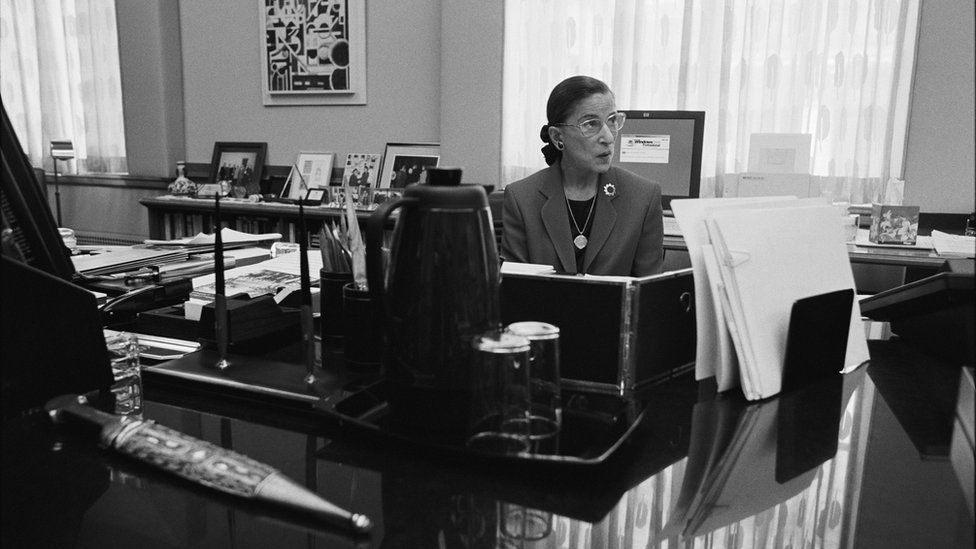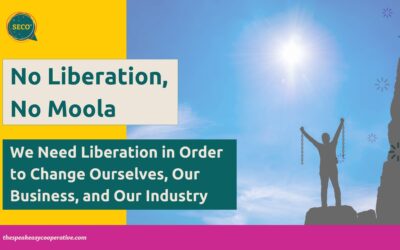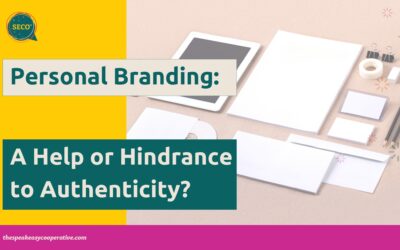A blog on brand expectations you may not expect.
A few weeks ago, I began our month of branding info with a FB live and blog focused on two of the big three components of brand that we use when we are going to come up with brand assets like our logos, fonts, and typography: Story and Promise. Today, I’m focusing on the third component: Brand expectations, and how to manage them.
With Friday’s hard-hitting news of the loss of Justice Ruth Bader Ginsberg, I wasn’t sure if I would go ahead and release this blog, or do the accompanying live on FB.
There was a whole post planned all about Nike and doping and amazing TV ads, Apple and their Announcements, and Starbucks and the Black Lives Matter movement. That version of this post needs to wait.
I’ve come to learn that people who know my brand expect something different from me when big things happen. (Surveys people, surveys!)
Sure, I could go down the traditional “Any marketing blog that is worth their salt will tell you that the customer’s brand expectations can keep people engaged, or have them looking elsewhere. We see examples of this all the time when a brand does something we do or do not expect them to do.”
Something tells me this isn’t the time for that version of how this works, though.
What are brand expectations?
They are the hopes and fears attached to the experiences humans have with you. Yes, you.
Just like we held hopes when we thought of RBG.
And how many of us have fears now that she is gone.
Imagine if RGB had no expectations to uphold? No expectations to break? Everything that she brought to the Supreme Court was some sorta mix of empowered expectation management.
She had a brand. And we had expectations. We expected her to care about some things, namely:
- Women’s rights
- Making people very uncomfortable
She became known for dissent. We expected her to stand for women, by being a woman of dissent.
In an interview with Slate magazine, she spoke to expectations:
“It’s an unconscious bias. It’s the expectation. You have a lowered expectation when you hear a woman speaking, I think that still goes on. That instinctively when a man speaks, he will be listened to, where people will not expect the woman to say anything of value. But all of the women in my generation have had, time and again, that experience where you say something at a meeting, and nobody makes anything of it. And maybe half an hour later, a man makes the identical point, and people react to it and say, ‘Good idea.’ That, I think, is a problem that persists.”
Justice Ginsburg did something few people are brave enough to do – something I want you to consider as you consider your brand and the expectations people have around you.
Justice Ginsberg took all the stories and promises other people placed upon her – the good and the ill – and she consistently delivered on our expectations. She consistently allowed the expectations placed upon her to drive her ability to stay unwavering when it came to her values and purpose.
Justice Ginsberg was an incredible trailblazer.
Yet, she’s got some pretty significant cringe-worthy moments, too. Moments in which I realize my expectations were not met. Moments when her consistency around her specific purpose caused disappointment. When her consistency caused us to question her values. (If you’re curious to know more, I suggest you read some articles about her hiring practices, her comments on Colin Kaepernick’s kneeling, and her thoughts in relation to the Harris v. McRae ruling.)
Just like us – she had brand expectations and she managed them. Sometimes poorly.
What about us, then? What about the expectations people have on us?
Whether we like it or not, people have already made some decisions about who they want us to be. They’ve developed a set of expectations based on their own stories. Their own narratives, created in their minds, based on their personal past and how they’ve engaged with every person in their life before they’ve met us. They developed stories based on history, systems, education, and theologies.
They have made a choice about who you should be based on who they want you to be.
This could scare us, or it could supercharge us.
We can be scared that we are stuck in other people’s perceptions of us. Let the “what ifs” stop us from being the best versions of ourselves.
Or, we can be supercharged to create expectations with our behaviors and messages that act as a beacon of hope to those looking for what we can provide.
Let’s manage the expectations by living our values and purpose even more clearly and boldly. Even when we do it poorly.
How about our website’s terms and conditions, our marketing, our offers, our sales processes, our social media presence, our reactions, and our interaction with those around us? It’s our great responsibility to meet people exactly where they expect us to be. Which means we must be clear on what that is.
Don’t back down out of fear of being misunderstood. You will be.
Try not to be silent because it’s easier. It’s not.
Resist the urge to allow all those expectations to become obligations. No one needs a martyr right now.
What we must do is align our insides with our outsides. We must manage expectations by being so clear, so brave, and so very thoughtful that who we are is always manifested in the way others engage our brands.
Maybe we will be wise enough to look more closely in the mirror to be absolutely sure that our clarity and bravery is intersectional. And, if we discover it isn’t? Be strong enough to admit it and change expectations.
With all Dissent,

Fight for the things you care about, but do it in a way that will lead others to join you. – Justice Ruth Bader Ginsberg
P.S This blog isn’t intended to be a “look how great RBG was aren’t we all wanting to just be like her *swoons*”. It’s a commentary on what can happen when you, even in all your mess, as a product of your time and place, and (perhaps) privilege, choose something to care about, then be boldly committed. Progress over perfection.






0 Comments